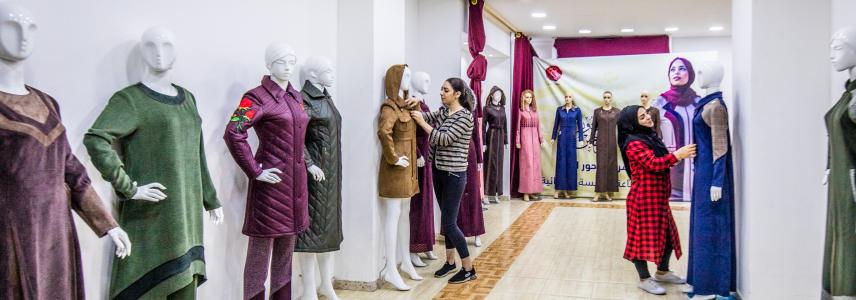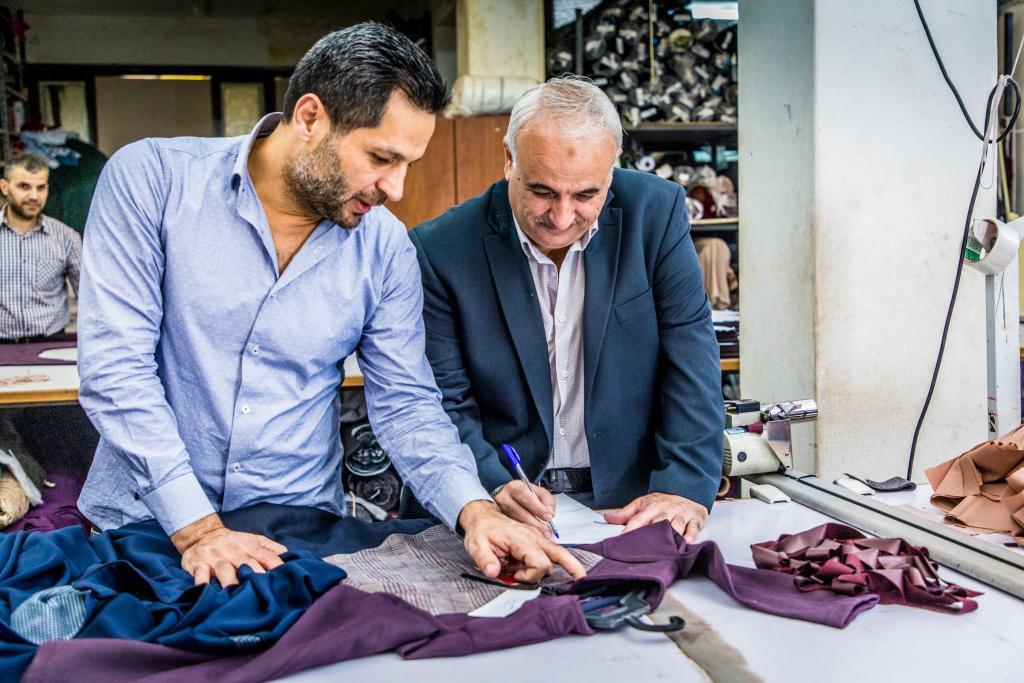CBI encourages Syrian apparel entrepreneur to consider export again

Before the start of civil war in Syria in 2011, Issam Salha had turned a small fashion store in Damascus into a successful international business in traditional Islamic apparel. He did this in just 10 years. By 1996, he had customers in North Africa, the US, Europe and neighbouring Arabic countries such as Lebanon and Jordan.
"I researched the style of both Shia and Sunni women. I made sure I knew what people liked to wear to special occasions, and made designs to match the style of my customers. Wherever I went, I recognised my dresses by their colours, styles and materials. I started with nothing, but when I left Syria, my business was worth 9 million Jordanian Dollars (JOD) - more than 11 million euros."

Starting again in Jordan
Issam had to escape Syria because his neighbourhood in Damascus, Jobar, was greatly affected by the war. Everything was destroyed, and Issam and his family lived on the street for 1.5 years. Issam arrived in Amman, Jordan, on February 21 2013. His wife, 2 daughters and 2 sons stayed behind in Syria. He did not have much money, as he had put everything into his Syrian business. He only had 10,000 JOD in cash. It took Issam 2 months to recover from his psychological shock. He then rented an apartment, a shop and a factory. He went back to Syria to get his wife and children, and he hired 1 employee to start his business ‘Al-Hour Al-Ein’ again.
Fabric in Jordan was 3 times the price he used to pay for Chinese fabric back in Syria. So, he bought stock material which was already 2 years old. Using his knowledge of the market, he made new samples. I changed the models. I put zippers in sports fashion and mixed colours in Islamic fashion. I looked at western fashion and translated trends to Islamic wear. It was difficult in the beginning because nobody helped me. They were afraid of the competition.” Rightfully so. By 2016, Issam owned a factory and 8 shops in and around Amman. “Because I produce high-quality garments, I have a good name in Jordan now,” he states, proudly. Still, his good reputation could not prevent the market from collapsing. As a result, he had to close 5 of his shops to reduce expenses.
Taking part in CBI’s apparel programme
Issam’s restart concentrated on the market in Jordan. In 2019, the Ministry of Industry in Jordan approached apparel entrepreneurs and informed them about the CBI programme. Issam welcomed the opportunity. “CBI encouraged me to think about exporting again. Last year, they took me to an important trade fair in Paris. They also arranged my visa, which is difficult for me as a Syrian refugee.
I told them I needed 2 clients to start exporting. So, they took me to the Islamic market and introduced me to potential clients. I had 50 samples with me, and the clients agreed to buy the designs. In the Netherlands, I made another small deal. This is the first step. When they see the quality that I deliver, they will come back. I have a lot of experience, and CBI is helping me to add the finishing touches. I have achieved a lot without an actual plan, but CBI has taught me how to make a business plan.
“When I came to Jordan, I did not know any Jordanian workers. However, I knew many Syrian workers. Many had fashion businesses in Syria. I wanted to help them, so I employed them. In 2019, Al-Hour Al-Ein employed 25 people in the factory and 7 in the shops. 5 of them are Jordanian.